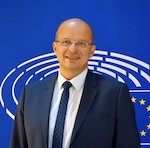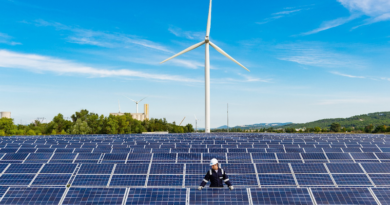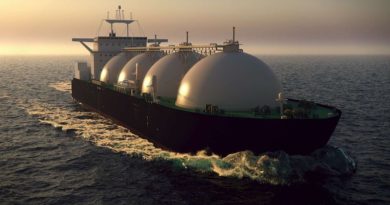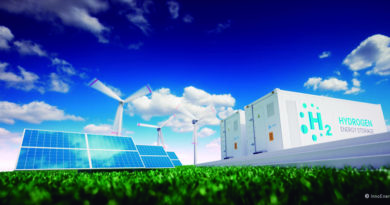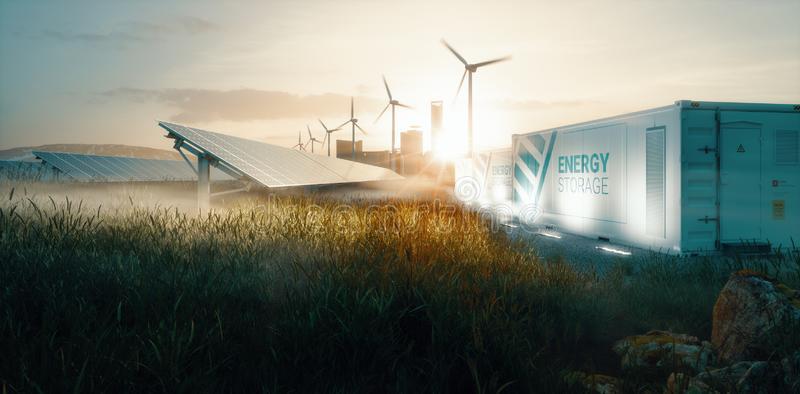
The EU is on the pathway to a real change of paradigm in its energy & Climate policy
I wish I could for once choose a heart-warming opening about climate. However, the images we saw and the scientific reports we read over the summer leave no space for our imagination: the planet is crying for help. According to the World Meteorological Organisation (WMO), more than 11,000 disasters have been reported in the last five decades worldwide, resulting in just over two million deaths and over $ 3.64 trillion in property damage1. At the same time, the last IPCC report confirmed that the role of human activities cause climate change.
The international community needs to speed up the process that started with the Paris Agreement in 2015. The EU, as frontrunner, is showing the way to follow with the launch of the EU Green Deal, which aims at decarbonising its entire economy by 2050.
Electricity is responsible for almost a quarter of all EU greenhouse gas emissions. Fossil fuels still provide today more electricity than renewables, with combustion-based plants dominating the energy mix.
The EU has done tremendous efforts to reverse the trend and to scale up renewables in the EU-27 energy mix. Renewable power generation has nearly doubled since 2005, producing 34% of the EU’s electricity in 2019, compared with the 38% from fossil fuels. Needless to say that the use of renewable energy has many potentials despite the reduction of greenhouse gas emissions: diversification of energy supplies, a reduced dependency on fossil fuel markets and job creation, among others.
Electrification is needed to achieve our climate goals but we cannot be successful without the use of green molecules such as biogas and hydrogen, which will help enhancing the flexibility of the electricity network and decarbonising hard-to-abate sectors like the steel industry.
The tremendous efforts put in decarbonising the industry will push the EU on the world stage as leader in climate proof technologies, strengthened by a foolproof strategic autonomy.
We also need to support other sectors that are hard to electrify such as the heavy-duty transport segment, which is responsible today for about 6% of total EU emissions.
Among the various technologies to be used in a climate-friendly economy, hydrogen needs to be fully decarbonised – it is not the case today as more than 90% hydrogen produced in Europe is fossil-based (coal or natural gas). The two European strategies on Hydrogen and on Energy system integration, alongside the launch of the European Hydrogen Alliance, give the right path to develop a resilient and competitive hydrogen market. In parallel, we now need to gather our effort in developing a strong regulatory framework, which will enable the market to scale up efficiently.
The scale up of green electrons and molecules, alongside the achievement of the Energy Efficiency First principle will lead us to our climate goals by 2050. However, we should choose a pragmatic path to develop a success story.
The EU should follow the principle of technology neutrality, notably by allowing the use of decarbonised technologies by Member States in their energy transition plan. Money should also be invested in research and innovation to look for new technologies that may be even more efficient than solar.
We need to get away from today’s naive approach that renewable power is a panacea.
We are at the dawn of a fantastic change of paradigm in the EU Energy & Climate policy that needs to comply with our requirements at environmental, economic and social levels. The revolution we are launching with the EU Green Deal and the “Fit-For-55” package cannot be successful if we underestimate the fears of the European citizens. France is an unfortunate example with the Yellow Vest protests. In her speech on the 2021 State of the Union, President Ursula von der Leyen rightly outlined that we need to have a green transition that is also fair. The proposal of a new Social Climate Fund goes along this line. As an elected member of the European Parliament, I will do my best to make the transition as efficient, future proof and conciliatory as possible.

